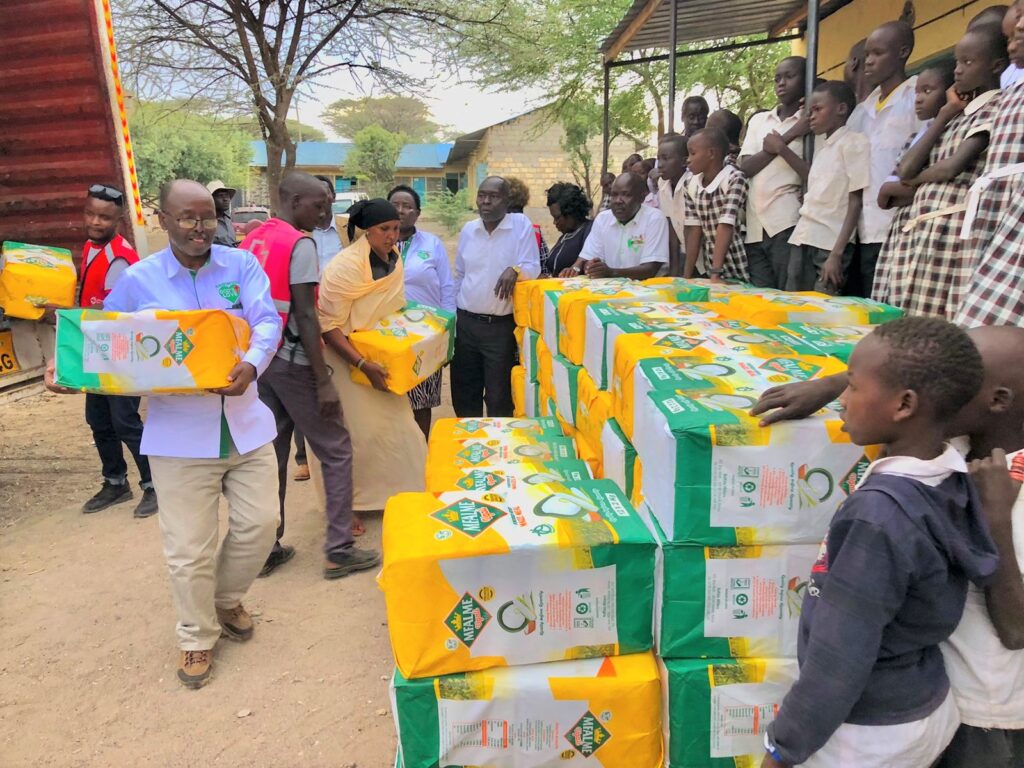The Livelihood, Nutrition Program is designed to address the urgent needs of families in the region who are struggling to put food on the table. Women, who are often the primary caregivers in these households, bear the brunt of food insecurity and malnutrition. This program was made possible by WhyHunger an organisation that connects and invests in grassroots solutions to hunger and poverty that nourish people and enrich communities The program seeks to provide a sustainable solution by providing training, resources, and support to improve the health and well-being of these vulnerable households.
Through this program, the Keiyo Women Trust is taking a multi-faceted approach to tackle the issue of food insecurity. One of the main components of the program is providing food support to these households. This includes donating bales of maize flour and other foodstuffs to families who are struggling to make ends meet. This immediate assistance is crucial to ensure that families have enough to eat and are not at risk of malnutrition.
However, the Trust recognizes that simply providing food aid is not enough to solve the underlying issues of poverty and food insecurity. Therefore, the Livelihood, Nutrition Program is also focused on providing training and resources to help these families become self-sufficient in the long term. The program includes training on sustainable farming practices, nutrition education, and business skills.
The program has already had a positive impact on the community. The Keiyo Women Trust recently visited the Chemolingot School for the Deaf and donated bales of maize flour and other foodstuffs to the students and staff. This donation not only provided much-needed assistance to the school, but also raised awareness about the Livelihood, Nutrition Program and its mission.
This program is a shining example of how organizations can work together to address urgent issues facing vulnerable communities. By providing immediate assistance and long-term solutions, this program is helping to improve the lives of women and families in the region. As the program continues to grow and expand, we can hope to see even more positive impact in the years to come.

